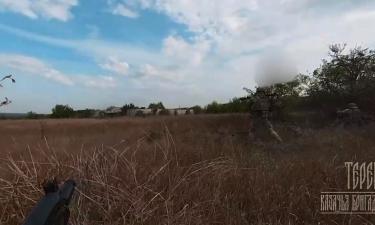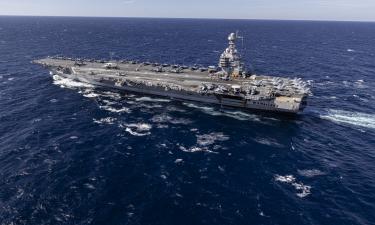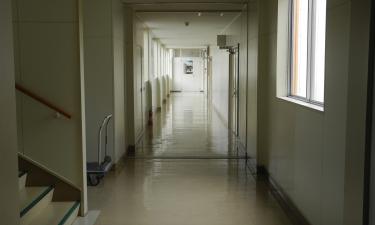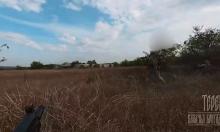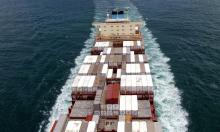Both Iraqi PM, Syrian president have interest in stabilizing Iraq
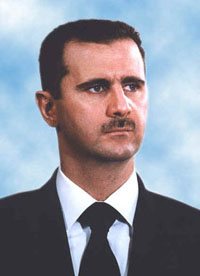
During the embattled Iraqi prime minister's first official visit to Syria he and Syria's autocratic leader said that both are interested in stabilizing Iraq.
Nouri al-Maliki's three-day sojourn in Syria comes as part of his efforts to seek neighbors' help in stemming the violence ravaging Iraq. He and Syrian President Bashar Assad appeared briefly before cameras before going into a closed meeting Tuesday.
"We are not complimentary in our speech, (but) we want this visit to be a success and we are interested in stabilizing Iraq and improving its situation," Assad told al-Maliki at the start of the talks.
"Yes, we have mutual interests, and there are real challenges, we have to combine our stances to solve problems and to weave a network of good relations for both countries," al-Maliki responded.
The United States and Iraq have repeatedly accused Syria of failing to reign in the flow of militants and arms across the porous boundary into Iraq. Syria denies the allegations that it is fueling the anti-American insurgency in Iraq, saying it is impossible to control the long desert border.
Damascus said earlier this month it had taken measures on its eastern border to increase security, including stationing fixed check points, border patrols, tightening measures on the crossing of people under the age of 30 and arrested a large number of infiltrators.
After the talks Tuesday with Assad, al-Maliki said he had insisted on the security issue and that the two agreed to find a mechanism for better border control but gave no details. He described the talks with Assad as encouraging and giving "hope of cooperation and understanding,
"Without security nothing can be accomplished, and we also offered the possibility of companies to invest in Iraq," said al-Maliki, who lived in Syria in the 1990s as an exile from Saddam Hussein's reign.
As part of Iraq's effort to entice Syria's help, Baghdad pledged to reopen a crude oil pipeline that passes through Syria if the border between the two countries was made safe.
While Iraq is concerned with the influx of foreign fighters, Syria has faced an increasing flow of refugees from Iraq - about 1.5 million Iraqis are living here, mostly in Damascus and its suburbs, severe straining the country's education, health and housing infrastructure.
Al-Maliki said he told Assad that Iraq takes "into consideration the pressures Syria is facing," while the Syrian leader said Damascus was "ready to offer everything helping in Iraq's stability."
As he had done with Iran's Mahmoud Ahmadinejad during a visit to Tehran last week, al-Maliki invited Assad to visit Iraq. "It is my dream to visit Iraq," Assad said at the end of the talks.
On Monday, al-Maliki's Syrian counterpart urged Iraq to create a timetable for U.S. troop withdrawal. Prime Minister Naji Ottri accused U.S. coalition forces of being the most responsible for the security deterioration in Iraq and said their withdrawal was key to national reconciliation.
Those comments underlined the frustrations al-Maliki faces in trying to appease both the United States and Washington's Mideast rivals - Tehran and Damascus. In Tehran, al-Maliki had said that decisions about an American pullout were between Baghdad and Washington.
Al-Maliki was accompanied on the trip by a high-level Iraqi delegation, including ministers of interior, trade, oil and water resources. He is expected to also sign several agreements while here.
Subscribe to Pravda.Ru Telegram channel, Facebook, RSS!
